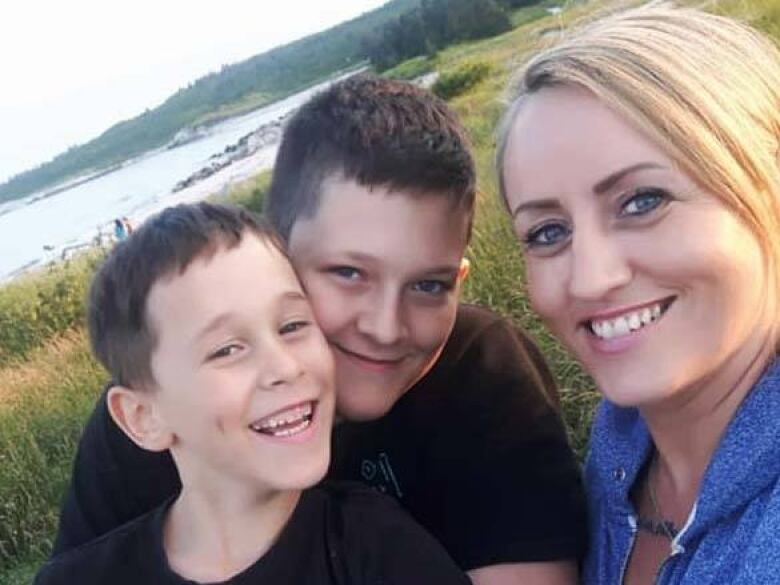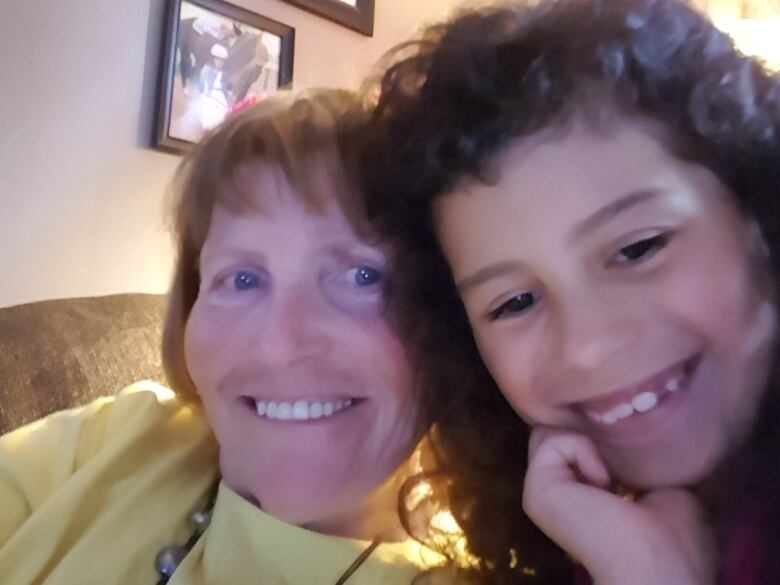On the first day of school, some Nova Scotia families opted to stay away
Some families still unsure about going back to class during COVID-19
Tuesday marked the first day of classes for thousands of students across Nova Scotia, but at Jayne Hawkins's house in Halifax, it was another day of summer vacation.
Hawkins's two sons did not return to public school classrooms and they still aren't sure if they'll go back at all this year.
Her 15-year-old, A.J., is waiting to find out if he'll be approved for a correspondence study program administered through the province, which is available for grades 10-12.
If he is, one semester could cost the family thousands of dollars for course material and textbooks that he'll use to learn independently at home.
For her nine-year-old, Damian, Hawkins said the family is still undecided between home-schooling and going back to the classroom for his Grade 4 year.

Hawkins's family was not the only one in the province to decide to stay away from traditional classrooms on Tuesday.
Here's why three different Nova Scotia families chose not to follow along with the province's back-to-school plan.
Better suited to learning at home
When schools shuttered in March and pivoted to at-home learning, Hawkins said A.J. thrived in the new environment.
She said school had always made him anxious, and after a couple of months of studying at home, he had doubled some of his grades.
"We had always suspected that he was capable of doing better in school, but we never had the option to find out. There was never an alternative," Hawkins said.
"So it was really nice to be able to take him out of the environment and actually see him not only doing the work that was assigned to him, but actually doing math and science a couple of levels above what he was assigned to do."
Still, the decision wasn't an easy one, she said. Hawkins was planning to go back to school herself this fall to earn a second degree, but the savings for her education will instead go to A.J.'s.
There's also the issue of missing out on the social aspect of school.
Hawkins said that's the primary reason she'd like her younger son to go back to a classroom, but the family is struggling to balance that against the risk of potential exposure to COVID-19.
Fear of the virus
"I'm high risk and my youngest son is very scared of the virus," she said.
Hawkins said Damian might try going to school later this week to test his comfort level, and they would make a permanent decision about his learning by this weekend. In the meantime, she said she was looking for information about home-school curriculum for him.
Donna MacIntyre was already set up for home-school on Tuesday, having decided over the summer it would be the best option for her 10-year-old granddaugther, Adreanna.

As MacIntyre spoke from her home in Pictou County,Adreanna worked on math problems nearby.
MacIntyre said going back to school wasn't worth the risk for her family her husband has chronic obstructive pulmonary disease (COPD) and she said she didn't think he would survive a bout of the virus.
She said she was stressed about having tolearn a new curriculum in order to teach it to Adreanna, but she had reached out to some family and friends to help with some subjects.
She said she doesn't want to continue home-schooling her granddaughter indefinitely, but her plans are contingent on the pandemic.
"If everything went well this year and we didn't have a big COVID spike at the schools, and things have settled and have gotten into a better routine, and [the province] changed a few of the protocols that they have in place for this year, I think I would be more than comfortable to send her back to school next year.
"But if the bottom falls out of everything and we're back to square one and dealing with all that stress all over again, I won't even consider putting you in for the Grade 6 year, I'll keep her home again."
Waiting for a change
Katie O'Blenis was planning to send her five-year-old daughter, Norah, to Grade 1 as recently as Monday night, but at the last minute she changed her mind. She kept her daughter home on Tuesday.
O'Blenis said she visited her daughter's elementary school in New Glasgow on Friday for a meet-and-greet and was disheartened to see that desks were still close together and there were no handwashing stations only hand-sanitizer dispensers.
O'Blenis said she thinks teachers are doing the best they can to make schools safe, but they're in "an impossible situation."
She said she wants the province to find a way for schools to enforce the three layers of protection that Chief Medical Officer of Health Dr. Robert Strang advocates: physical distancing of two metres, mask-wearing and handwashing.
She said she's also concerned about ventilation, which experts have lately held up as an essential factor in preventing COVID-19 spread in indoor spaces.
The Department of Education said last week it had checked all school ventilation systems and would ensure any maintenance work was done by Tuesday, but O'Blenis said she wanted the detailed reports for that work to be released.
Without confidence in the safety precautions against COVID-19 at her daughter's school, but not ready to commit to home-schooling, O'Blenis said she was taking things day by day.
"Unless something major changes, I can't see feeling like it's OK to send her," she said.
The Department of Education would not provide an estimate for the number of students learning at home this year. A spokesperson said the department would know more after registrations are processed later this month, and that all schools reported strong attendance on the first day.













_(720p).jpg)


 OFFICIAL HD MUSIC VIDEO.jpg)
.jpg)



























































































